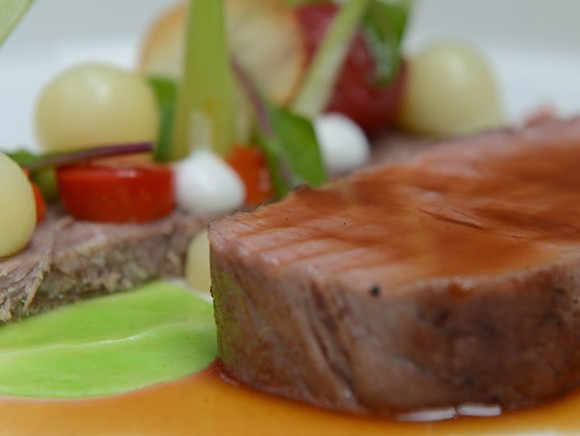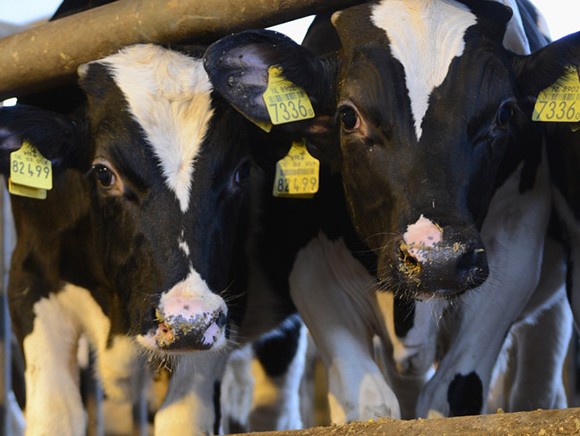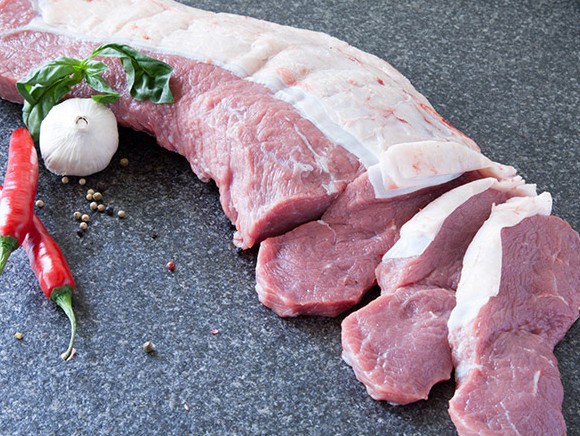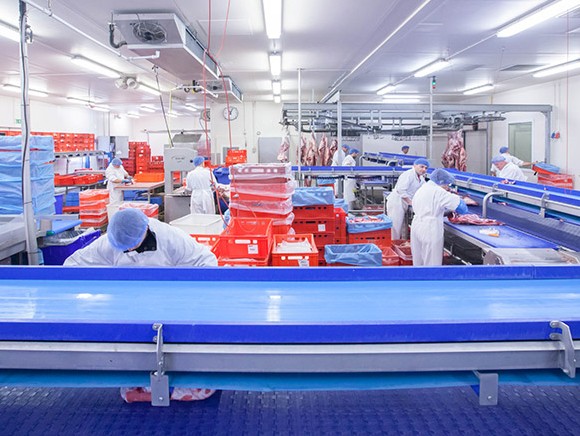
All around the world, food safety is becoming an ever-bigger issue. Consumers want hard guarantees that everything they eat is safe and healthy. Animal health and welfare are high on the agenda too. How can those two topics be combined? We asked Veal Fine Group.
For many years, Veal Fine Group has been monitoring its own chain, from farm to fork, thanks to the collaboration between two family companies: Veal Fine Hans Roerink, and veal farmer and ‘rosé’ pioneer Wim van Roekel. Since November 2013 there has been a strategic partnership with ‘Veal Fine Livestock’ which has enabled far-reaching chain alignment and ensured influence over both the veal farming methods and the supply. The organisation comprises a network of around a hundred carefully selected Dutch veal calf farms.
“Veal calf farmers are family companies that have been raising calves for generations: farmers with knowledge and a love of their animals and their profession,” states Mark van Roekel, salesman at Veal Fine Hans Roerink and son of calf farmer Wim van Roekel. “We all want to work together with the very best fatteners: farmers with a passion for rearing rosé veal calves. For our chain, we select Holstein Friesian-breed bull calves from dairy farmers. A good calf farmer checks on his animals three to five times a day; it’s a seven-day-a-week job.” And he knows what he’s talking about; Mark himself grew up surrounded by veal calves and is the third generation of his family in the company.

For more than 30 years, Veal Fine Hans Roerink BV has been processing carcasses into ready-to-slice rosé veal products for the foodservice, retail and industrial sectors. Mark: “We work in partnership with dairy farming, because that’s our basis. After all, a cow only produces milk if she bears a calf every year. Approximately half of those calves are male, i.e. not suitable for milk production.” The good news is that the veal calf sector has made lots of progress in terms of animal welfare. “Part of the chain has been certified with a 1-star rating by the Dutch Society for the Protection of Animals in the ‘Better Life’ quality scheme. Investment has been made in more spacious and airy stalls with comfortable floors in group housing and the animals are fed roughage so that they can ruminate. Moreover, transport is kept to a minimum.”
“Beautiful and flavoursome meat, it’s a joy to work with” - Caesar de Kruijf, head chef at Buitenzorg Ede

“Our bull calves are raised on natural roughage,” continues Mark. “The mix of grains, corn and straw ensures meat with a pure, full-bodied flavour and veal that is nice and pink. To keep a grip on food safety right from the start of the chain, Veal Fine also manages the purchase of the feed, which is sourced exclusively from approved, certified feed companies. Our calves are fed a finely tuned diet for 32 weeks, which is formulated on a weekly basis. This assures us of consistently high-quality meat. We also continuously select our calves based on size and weight; the big ones are housed with the other big animals and the smaller calves with the other small ones, since they are given extra feed such as muesli. In addition, the farmers receive support and guidance from a calf specialist who monitors the animals’ health.”
Veal Fine has chosen to operate on a certain scale. “That’s necessary in order to be able to supply tailor-made products,” explains Mark. “One thing that typifies this company is that it grows gradually. We take everything step by step; that enables us to stay in control of the whole process and the chain.” And the company is indeed growing, albeit steadily, especially in export – to Germany, Scandinavia and France, for example. “The added advantage of export is that it also helps us to serve the Dutch market better,” adds Mark. “Each country has its own preferences. In Germany, for instance, there is a high demand for topside for veal schnitzels, whereas Scandinavia wants tail sections and the offal mainly goes to France. Hence, every part of the calf is valorised. That diversity is essential because we regard carcass balance as crucial. We go pretty far in terms of our meat processing activities; we divide the entire calf into up to 100 cuts. That enables us to always provide tailor-made solutions for all kinds of companies, large and small.”
In Europe, Veal Fine Hans Roerink supplies to the retail channel, foodservice and the food processing industry. “We supply our veal as an ingredient to various well-known A-brand manufacturers, such as for veal croquettes, veal steak tartare and veal ragout. Because the communication lines are short, we can guarantee an extremely consistent quality of meat, which is what such customers explicitly demand. Veal is primarily eaten in out-of-home channels. The veal favourites on Dutch menus tend to be veal sirloin, veal rib-eye and braised veal. Chefs know how to cook this meat optimally.”

One thing that strikes him is that customers are placing ever-more importance on a transparent chain in connection with food safety. “Over recent years, there has been increasing focus on traceability in the meat sector. That’s really easy for us because we control everything ourselves, from farm to fork. Customers visit us to conduct audits, and our quality is certified in line with the likes of FSSC 22000, IKB and the ‘Better Life’ scheme.” And yes, veal regularly graces his own plate too. His eyes begin to sparkle. “There’s nothing better or tastier!” he exclaims.
Source: © Veal Fine Group